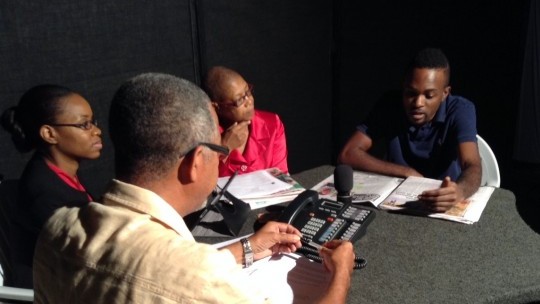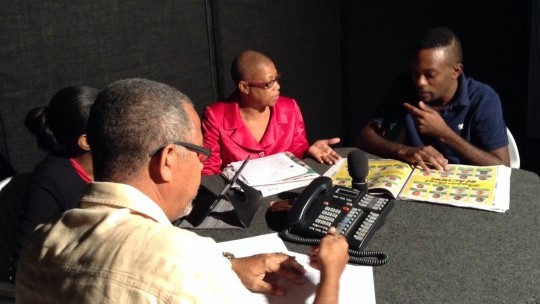I read this in the FT on the train this morning...
High quality global journalism requires investment. Please share this article with others using the link below, do not cut & paste the article. See our Ts&Cs and Copyright Policy for more detail. Email [email protected] to buy additional rights. http://www.ft.com/cms/s/0/dc0aa020-0...#ixzz3b9cY3o9c
Fastjet looks south to expand cut-price flights in Africa
Kate Burgess
Tanzanian-based budget carrier regroups after turbulent first three years

You can see why Fastjet got its name but Slowjet would have been more accurate.
Last week the low-cost African airline said it was using the £50m raised recently to increase its fleet of Airbus 319 “babybus” jets from three to four.
More
ON THIS TOPIC
SMALL TALK
Sign up now
FirstFT is our new essential daily email briefing of the best stories from across the web
Sanlam, the brokers, described the deal as transformational and believes that Fastjet will turn profitable next year for the first time since its launch on Alternative Investment Market three years ago.
But four babybuses is a long way short of the 30-strong fleet that Fastjet said in 2012 it would have by now.
Fastjet was dreamt up by David Lenigas, then chairman of mini-Africa conglomerate Lonrho, and Sir Stelios Haji-Ioannou of easyJet who talked of Africa as “the aviation industry’s last frontier”. Together they conjured a vision of a lookalike easyJet bringing air travel to Africa’s 1bn-plus population and running short-haul routes between Ghana, Kenya, Tanzania and Uganda.
Sir Stelios and crew, including Ed Winter, pilot and former operating officer of easyJet, supplied the know-how on running a low-cost carrier. Lonrho supplied its local carrier Fly 540 in exchange for a 74 per cent stake.
But there have been more pies in the sky than Fastjet aircraft and the shares are a fraction of what they were.
Chief executive Mr Winter — now 68 and who commutes to Africa from his home in the UK — admits his experience of Africa was “limited” when he joined the company.
It took a year or so to wake up to the reality of doing business there. “I very much underestimated the time it takes to establish in Africa. The plans in 2012 were overambitious”.
Since then Mr Lenigas has disembarked and is focused on heading up UK Oil & Gas, the Aim tiddler that recently claimed it had found a sea of oil in Surrey. Lonrho was taken private in late 2013 and sold its shares that year. Easygroup has retained a 9.9 per cent stake but its relationship with the group has been far from easy with Sir Stelios objecting publicly to Mr Winter’s pay package last year.
I very much underestimated the time it takes to establish in Africa. The plans in 2012 were overambitious- Ed Winter, Fastjet chief executive
The residue of Lonrho’s Fly540 in Kenya has been sold and plans for Ghana have been shelved. Only the Tanzanian business remains.
Now Mr Winter is trying to secure licences to fly short-haul routes in Zimbabwe and Zambia while building Fastjet anew in Uganda and Kenya. The trade links between southern and east Africa are well established, he says, and the population of just over 200m people accounts for a fifth of the continent’s national income.
The art of airline profitability is to get enough bums on seats to cover the heavy costs of fuel and buying or leasing aircraft and have a big enough fleet to spread other overheads.
But it is tough enough for small airlines to establish themselves in affluent and politically stable countries where people jump on aircraft as if they were buses and the infrastructure is reliable.
Fastjet operates in a poor, largely undeveloped region prone to political upheaval and corruption with just three aircraft costing as much as $3.5m a year to lease and keep in the air.
Mr Winter is still eloquent about the need for a low-cost carrier to “democratise” air travel in Africa”.
Existing airlines, many of them monopolies or national flag carriers protected by local loyalties and politics and lack of competition, “gouge” their customers, he says. Passengers in Africa pay four times per seat per kilometre than they do in Europe. And that is constraining the market and hindering business.
Fastjet’s cut-price flights between say Lake Victoria and Dar es Salaam are transfiguring Tanzania’s economy, Mr Winter claims. It could do the same for neighbours such as Zambia — which lacks a flag carrier — and Zimbabwe if Fastjet can persuade the authorities to hand it the licences to operate.
Expanding into southern Africa should also transform Fastjet’s finances. Its business in Tanzania turned in its first ever monthly profit in December and Mr Winter and shareholders hope that is a sign of things to come.
Mr Winter still plans to have 30 or so babybuses in the hangar by 2018. And then all he needs is a couple of million people — a mere 2 per cent of the population of east Africa — to fly Fastjet a couple of times a year. Selling 10m seats would be worth $1bn a year in revenues. “That is equivalent to 34 aircraft flying flat out,” says Mr Winter.
Let’s hope his flight plans are more down to earth than they were three years ago. Shareholders should not rely on it
High quality global journalism requires investment. Please share this article with others using the link below, do not cut & paste the article. See our Ts&Cs and Copyright Policy for more detail. Email [email protected] to buy additional rights. http://www.ft.com/cms/s/0/dc0aa020-0...#ixzz3b9cY3o9c
Fastjet looks south to expand cut-price flights in Africa
Kate Burgess
Tanzanian-based budget carrier regroups after turbulent first three years

You can see why Fastjet got its name but Slowjet would have been more accurate.
Last week the low-cost African airline said it was using the £50m raised recently to increase its fleet of Airbus 319 “babybus” jets from three to four.
More
ON THIS TOPIC
- Fastjet closes in on more Africa licences
- Fastjet touches down in Johannesburg
- Fastjet sets date for maiden flight
- Fastjet navigates tough African terrain
SMALL TALK
- Burmese social network eyes Aim float
- Ryan running out of time at Mar City
- Investors bet on risky biotech start-ups
- Johnston Press shows life in local papers
Sign up now
FirstFT is our new essential daily email briefing of the best stories from across the web
Sanlam, the brokers, described the deal as transformational and believes that Fastjet will turn profitable next year for the first time since its launch on Alternative Investment Market three years ago.
But four babybuses is a long way short of the 30-strong fleet that Fastjet said in 2012 it would have by now.
Fastjet was dreamt up by David Lenigas, then chairman of mini-Africa conglomerate Lonrho, and Sir Stelios Haji-Ioannou of easyJet who talked of Africa as “the aviation industry’s last frontier”. Together they conjured a vision of a lookalike easyJet bringing air travel to Africa’s 1bn-plus population and running short-haul routes between Ghana, Kenya, Tanzania and Uganda.
Sir Stelios and crew, including Ed Winter, pilot and former operating officer of easyJet, supplied the know-how on running a low-cost carrier. Lonrho supplied its local carrier Fly 540 in exchange for a 74 per cent stake.
But there have been more pies in the sky than Fastjet aircraft and the shares are a fraction of what they were.
Chief executive Mr Winter — now 68 and who commutes to Africa from his home in the UK — admits his experience of Africa was “limited” when he joined the company.
It took a year or so to wake up to the reality of doing business there. “I very much underestimated the time it takes to establish in Africa. The plans in 2012 were overambitious”.
Since then Mr Lenigas has disembarked and is focused on heading up UK Oil & Gas, the Aim tiddler that recently claimed it had found a sea of oil in Surrey. Lonrho was taken private in late 2013 and sold its shares that year. Easygroup has retained a 9.9 per cent stake but its relationship with the group has been far from easy with Sir Stelios objecting publicly to Mr Winter’s pay package last year.
I very much underestimated the time it takes to establish in Africa. The plans in 2012 were overambitious- Ed Winter, Fastjet chief executive
Tweet this quote
The residue of Lonrho’s Fly540 in Kenya has been sold and plans for Ghana have been shelved. Only the Tanzanian business remains.
Now Mr Winter is trying to secure licences to fly short-haul routes in Zimbabwe and Zambia while building Fastjet anew in Uganda and Kenya. The trade links between southern and east Africa are well established, he says, and the population of just over 200m people accounts for a fifth of the continent’s national income.
The art of airline profitability is to get enough bums on seats to cover the heavy costs of fuel and buying or leasing aircraft and have a big enough fleet to spread other overheads.
But it is tough enough for small airlines to establish themselves in affluent and politically stable countries where people jump on aircraft as if they were buses and the infrastructure is reliable.
Fastjet operates in a poor, largely undeveloped region prone to political upheaval and corruption with just three aircraft costing as much as $3.5m a year to lease and keep in the air.
Mr Winter is still eloquent about the need for a low-cost carrier to “democratise” air travel in Africa”.
Existing airlines, many of them monopolies or national flag carriers protected by local loyalties and politics and lack of competition, “gouge” their customers, he says. Passengers in Africa pay four times per seat per kilometre than they do in Europe. And that is constraining the market and hindering business.
Fastjet’s cut-price flights between say Lake Victoria and Dar es Salaam are transfiguring Tanzania’s economy, Mr Winter claims. It could do the same for neighbours such as Zambia — which lacks a flag carrier — and Zimbabwe if Fastjet can persuade the authorities to hand it the licences to operate.
Expanding into southern Africa should also transform Fastjet’s finances. Its business in Tanzania turned in its first ever monthly profit in December and Mr Winter and shareholders hope that is a sign of things to come.
Mr Winter still plans to have 30 or so babybuses in the hangar by 2018. And then all he needs is a couple of million people — a mere 2 per cent of the population of east Africa — to fly Fastjet a couple of times a year. Selling 10m seats would be worth $1bn a year in revenues. “That is equivalent to 34 aircraft flying flat out,” says Mr Winter.
Let’s hope his flight plans are more down to earth than they were three years ago. Shareholders should not rely on it








.png)



Comment